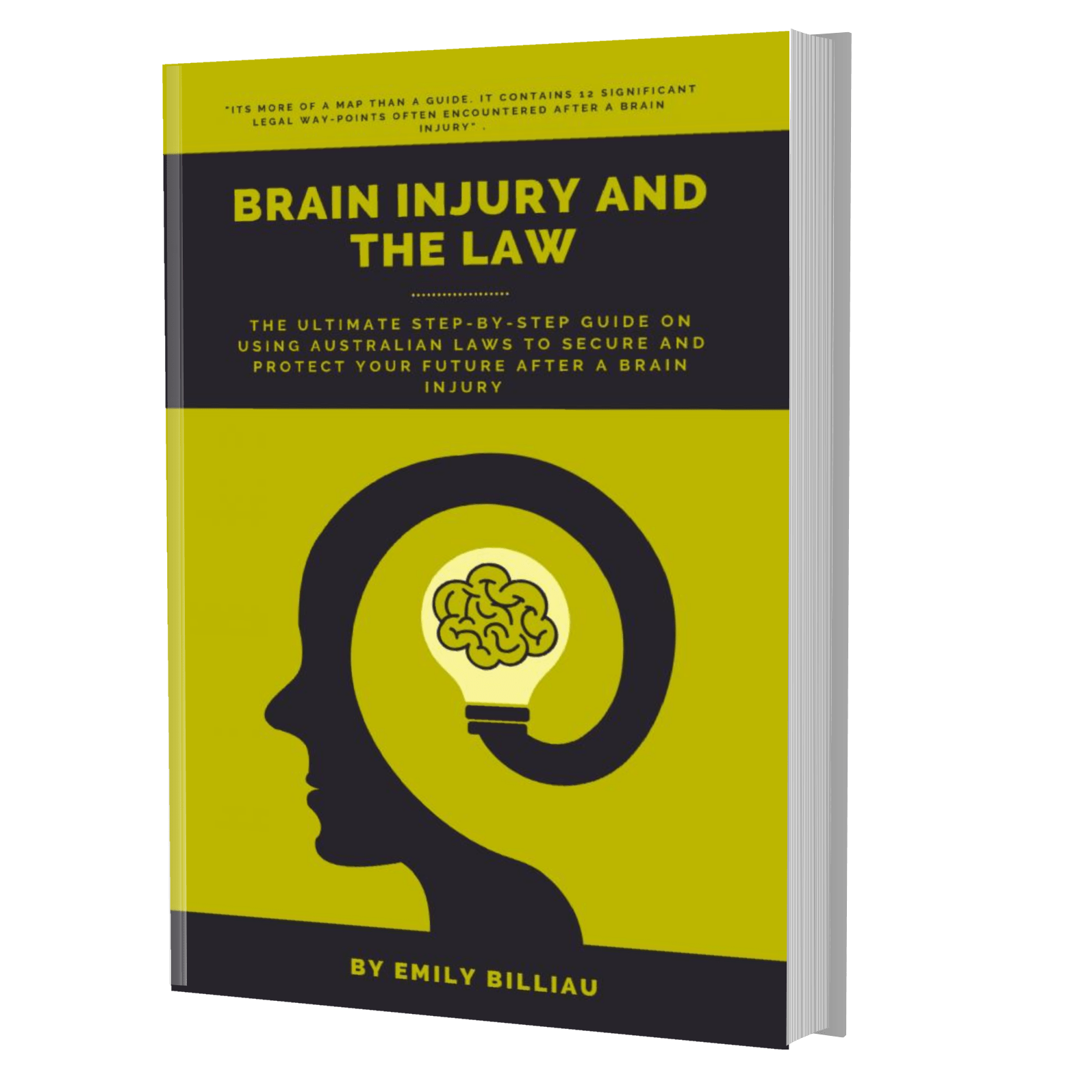
Sign Up below
and get instant access to our guide.
You will get instructions on how to get into the The Briefing Room after you hit the button above!

This guide is the ultimate planning tool to secure your financial future after a brain injury. You will be meticulously guided through 13 areas where the legal system can have a massive impact on your quality of life.
Here's a taster of 1 area - Wills & Estates.

Written by Fred Smith
Contact Fred on (07) 3231 0631
You’ve reached the final stage. As the journey is nearing the end, you might be feeling fatigued. In fact, it’s highly likely you’re feeling over it.
But don’t give up now.
The final stage is to consider making changes to your will (and estate).
The majority of Australians over the age of 30, or over the age of 18 with large assets, will have a will.
A will gives instructions as to how the assets and estate of a deceased person should be distributed.
Through your will, you can nominate who gets:
It can seem like a simple process, however it is normally complex.
This is especially in matters where high value estates and assets are involved, or when there are family breakdowns or members with disabilities.


Get all 13-Stages and 6 downloadable resources by signing up for the complete guide. All it takes is 1 minute!

There are substantial factors that needs to be taking into consideration when leaving inheritance to someone with a disability.
For starters, any level of inheritance could affect their government funding, including health and pharmaceutical benefits. In serious cases, or matters involving large inheritance, their entitlements can cease all together.
This inheritance amount could be more than what their benefits provide, however most benefits are paid on a regular schedule not as a lump sum payment.
For those with brain injuries, particularly those experiencing impulsive breakouts, a lump sum payment could do more harm than good.
In addition, requirements for some of these government schemes include active employment, seeking employment, study, community contribution and involvement, etc. A lump sum payment could be a deterrent to continue their involvement, lowering their self-esteem.
If your wealth or assets are likely to impact on the person’s means-tested income eligibility, it’s worth considering a disability trust, superannuation death benefits pension, or other protective option.
Leaving your assets to someone with intention for them to look after the person with a brain injury is not advisable. This has no legally binding control to it and means you will have no control over the decisions the relative makes.
The best way around this is to establish a protective trust, with one of your friends or relatives as a trustee. This means the person assigned as trustee will manage assets for the benefit of the brain injured party (the beneficiary).
Establishing protective trusts costs quite a bit more than making a standard will, and comes with much greater complexity. In any instance, you should contact the author of this section – Fred Smith – on (07) 3231 0631 to discuss your options.
Further to considering wills for family members around the person living with a brain injury, you also need to consider the will for the person themselves.

It is absolutely vital to update (or write) a will for anyone who is living with a brain injury to protect their assets in case of the worst, particularly if they are in receipt of lump sum compensation.
But, to be able to form a will you must have testamentary capacity.
This means you understand:
With that said, let’s jump straight into the final Waypoint.

Like stated above, a person needs testamentary capacity to create a valid a will.
If testamentary capacity is in question, you should ask a doctor or psychologist to make a written assessment of your/the person with a brain injury’s capacity. This should be done by someone who is experienced in these assessments – if you are unsure, you can simply call up your treating healthcare provider and ask.
If approved, you should attach this to the will.
In addition, the witnesses could and should attach a written note of their reasons for believing you have the capacity to avoid a contentious will – that is, the will be overturned or questioned for validity.
In the instance where the person does not have testamentary capacity, it is still possible for a will to be made. To for this you need to apply to the Supreme Court which is a complex process and one that needs to be addressed with a lawyer. To do this, you should speak to Fred Smith on (07) 3231 0631 and ask for assistance with drafting wills where there is no testamentary capacity.
To make changes relative to the family member’s wills, you can make legal changes to your will (a codicil) or you can completely revoke and rewrite your will.
It is advised to do the latter to avoid intestacy or partial intestacy (your will hasn’t accounted for all property correctly and can be contested).
In any instance, wills are incredibly important documents and one of the greatest legacies you can leave with your family – you want to get it right.
You should always contact a lawyer who specialises in wills and estates for the incapacitated and their family.
A lawyer like Fred Smith.
You can reach out to him on (07) 3231 0631 to secure your futures today.

At this point, we are assuming that our ‘new life’ is complete, and so we’ve ended our 12 stage guide here.
However, we are realists and accept the fact that things don’t always go to plan.
The stress of adapting to a brain injury puts unbelievable pressure on spousal relationships.
So the next section covers what can happen should those relationships irretrievably break down.


Get all 13-Stages and 6 downloadable resources by signing up for the complete guide. All it takes is 1 minute!